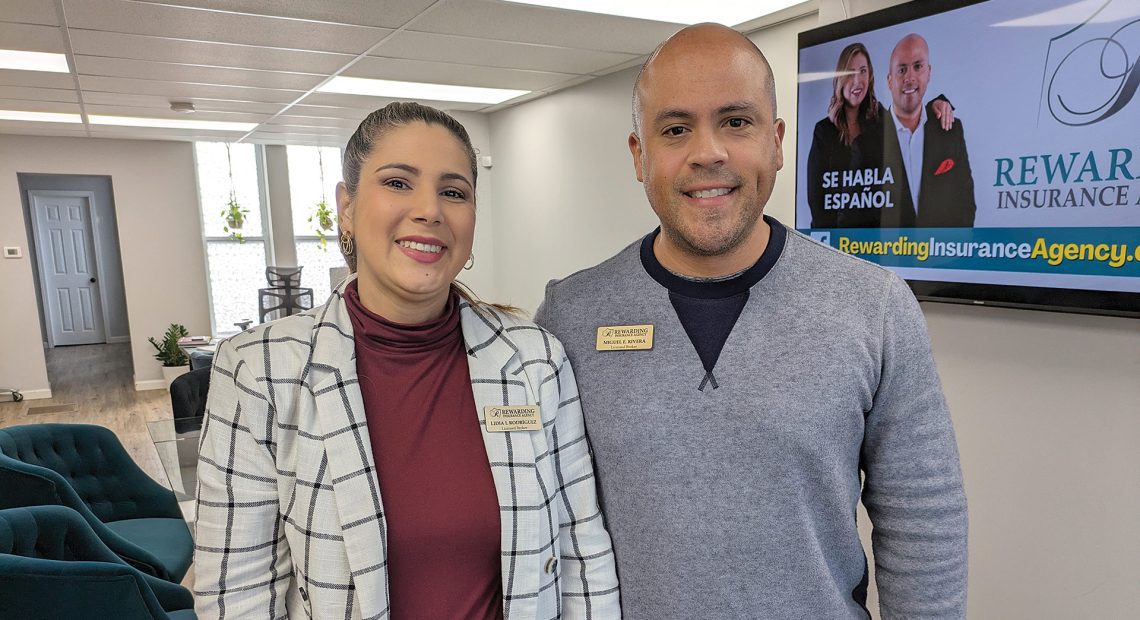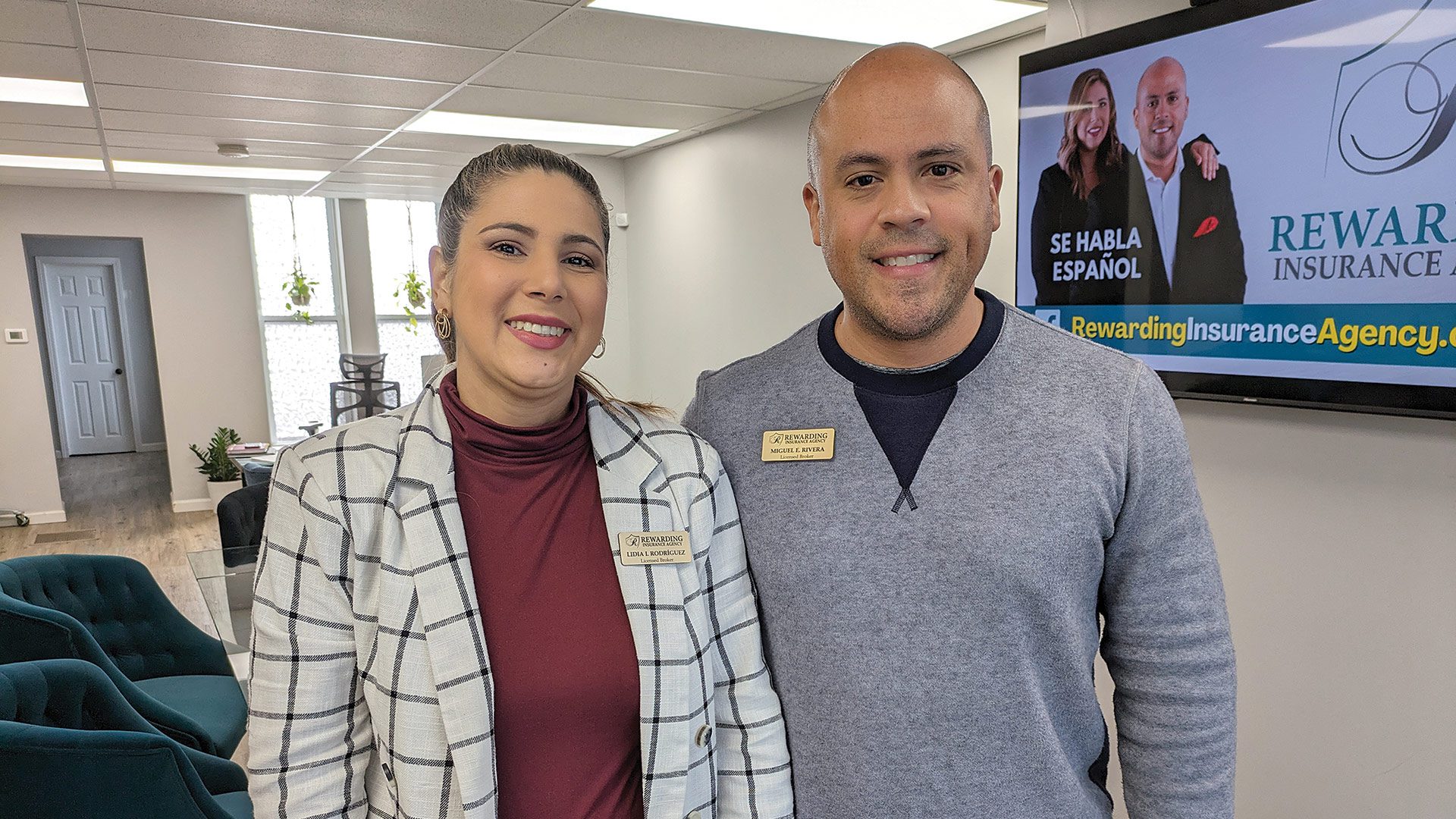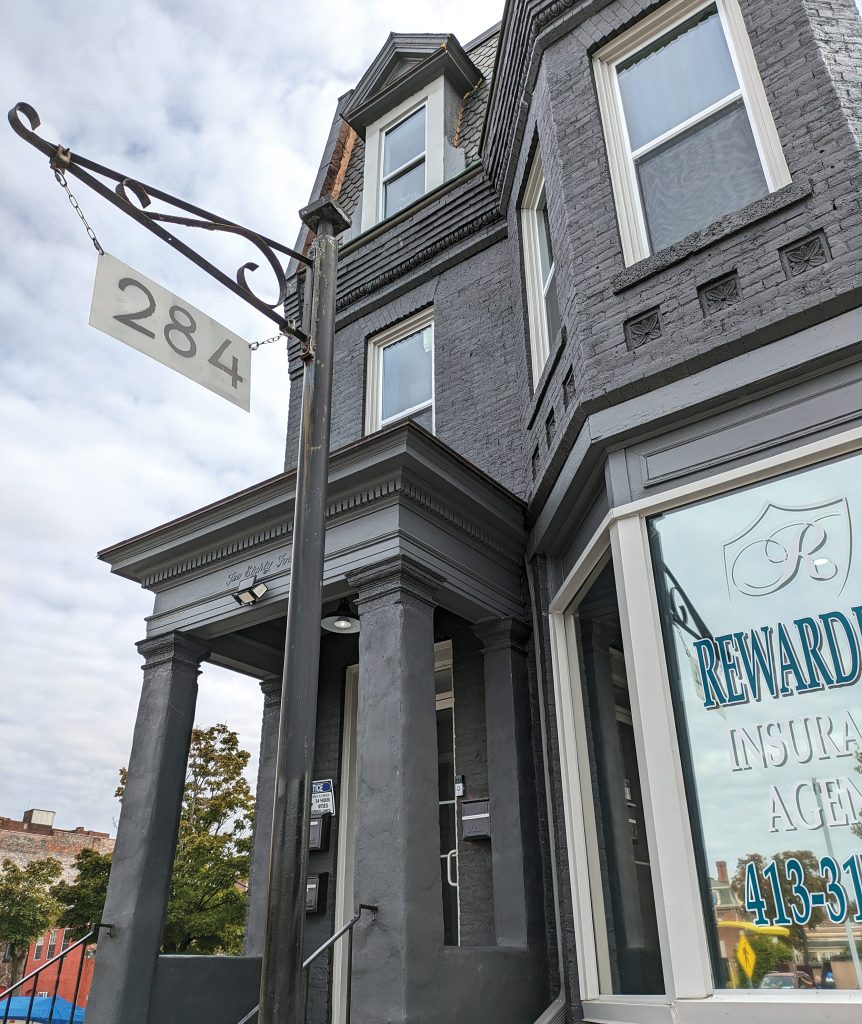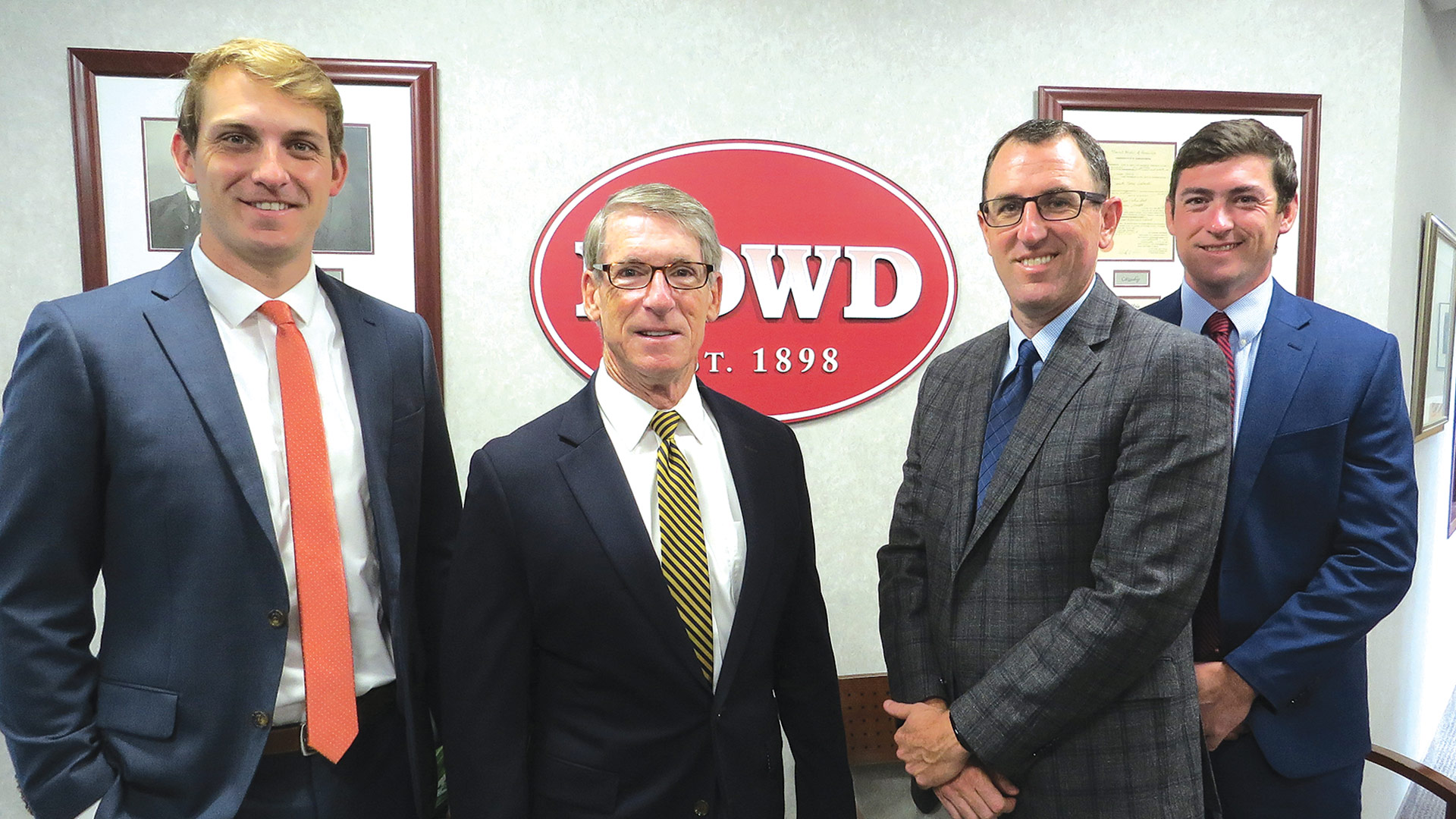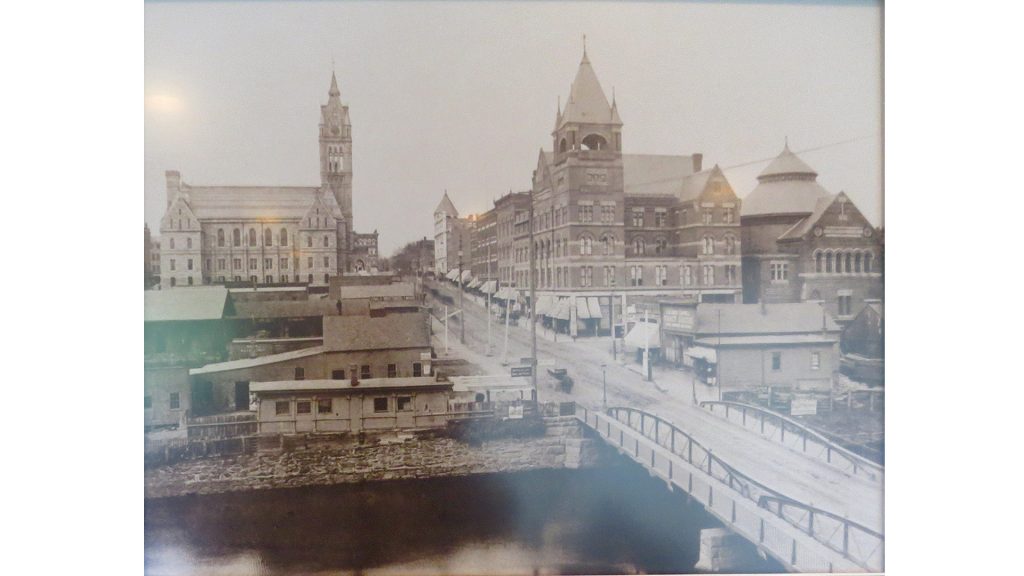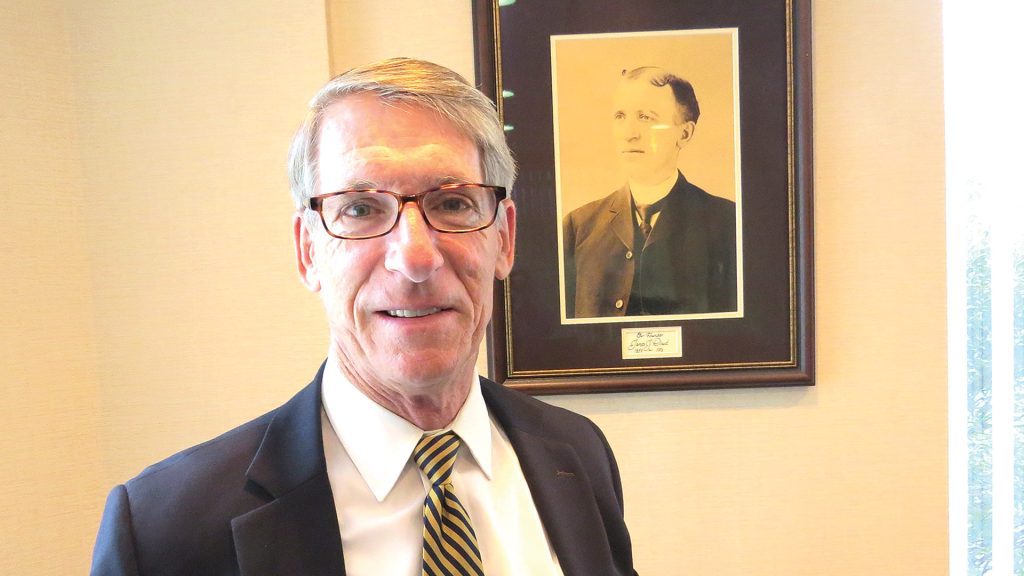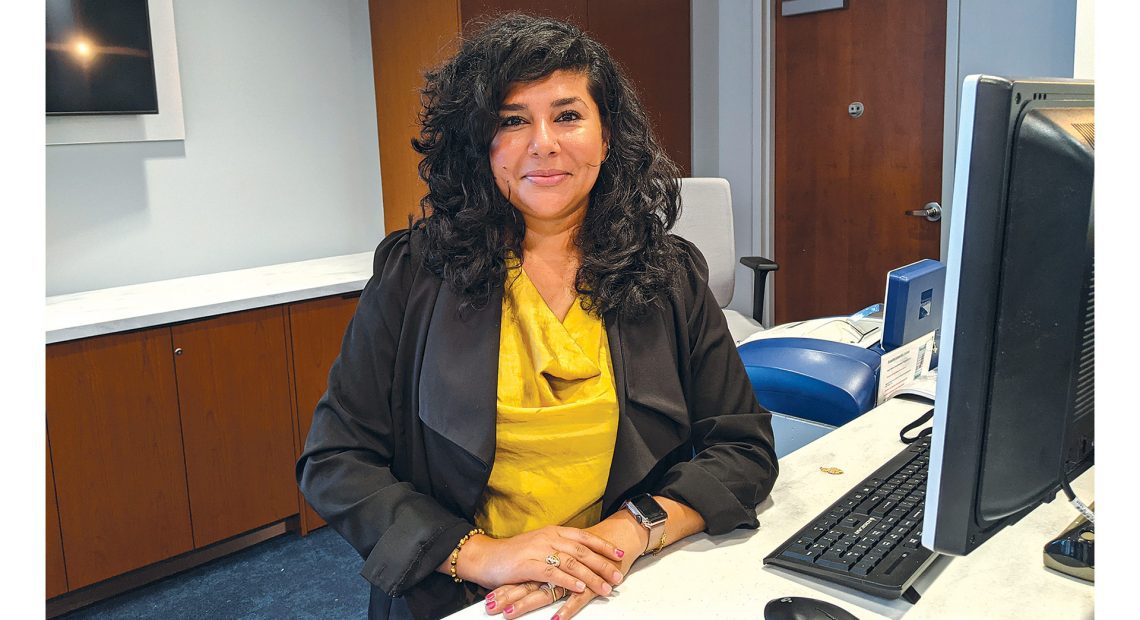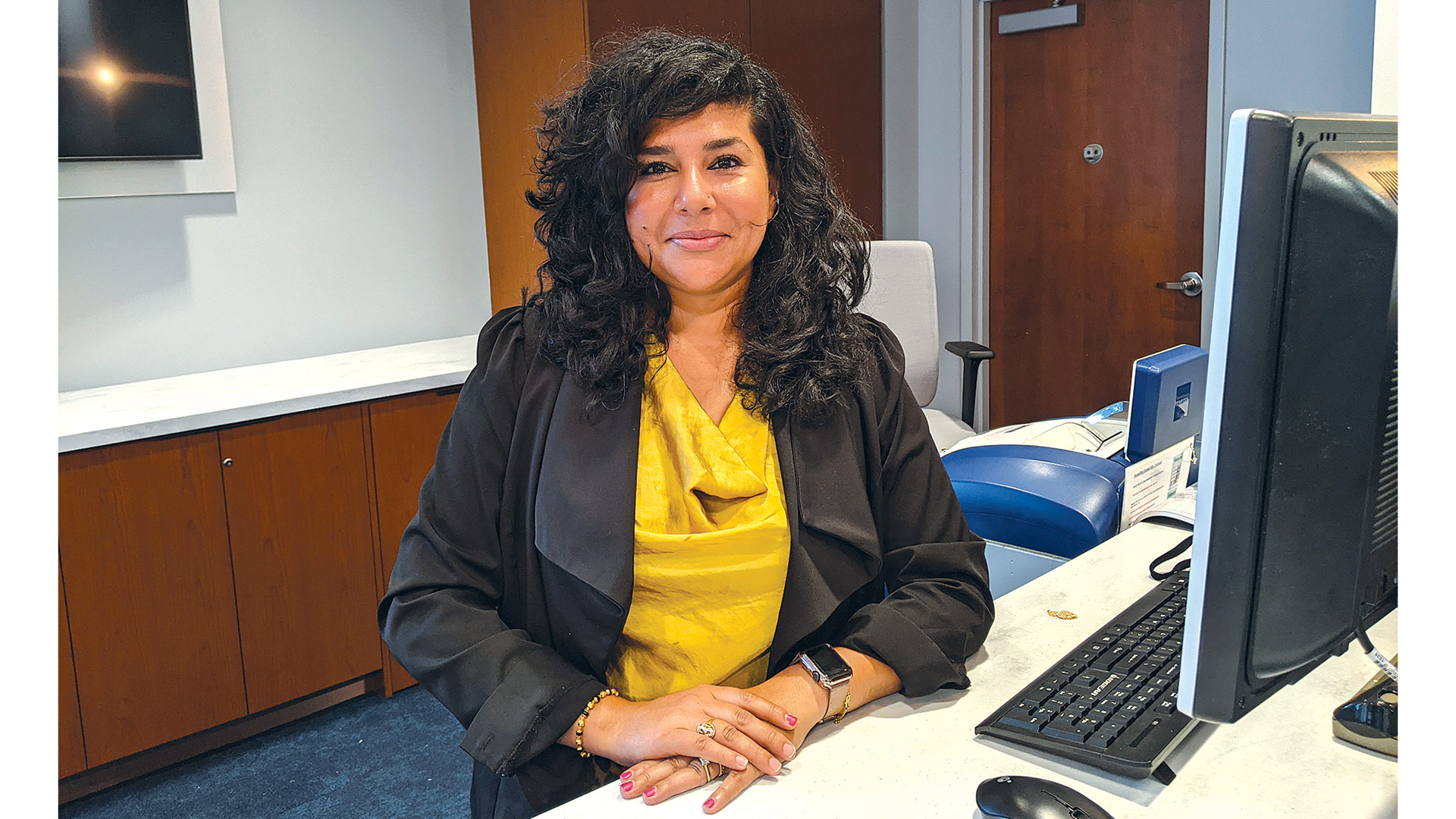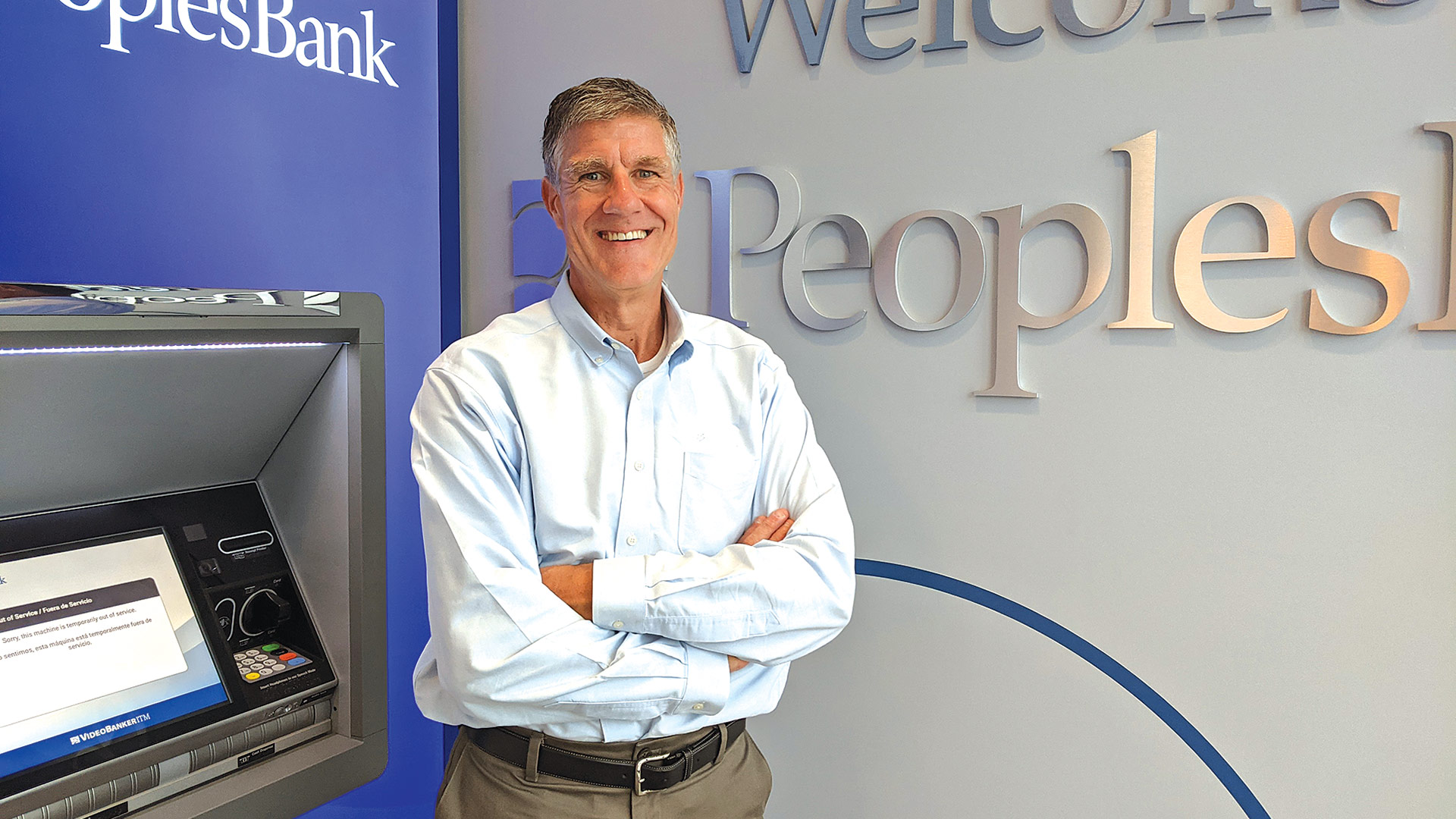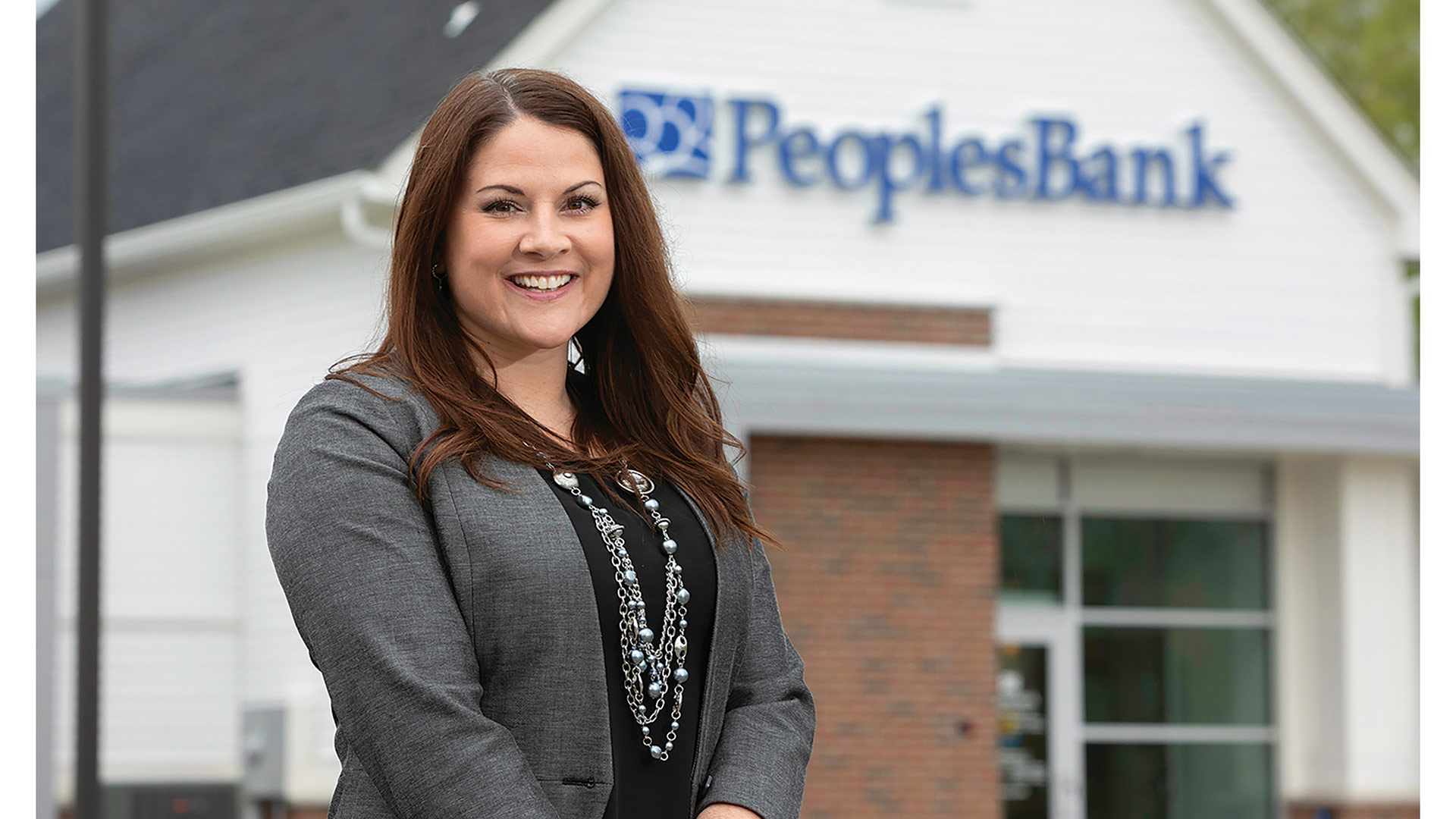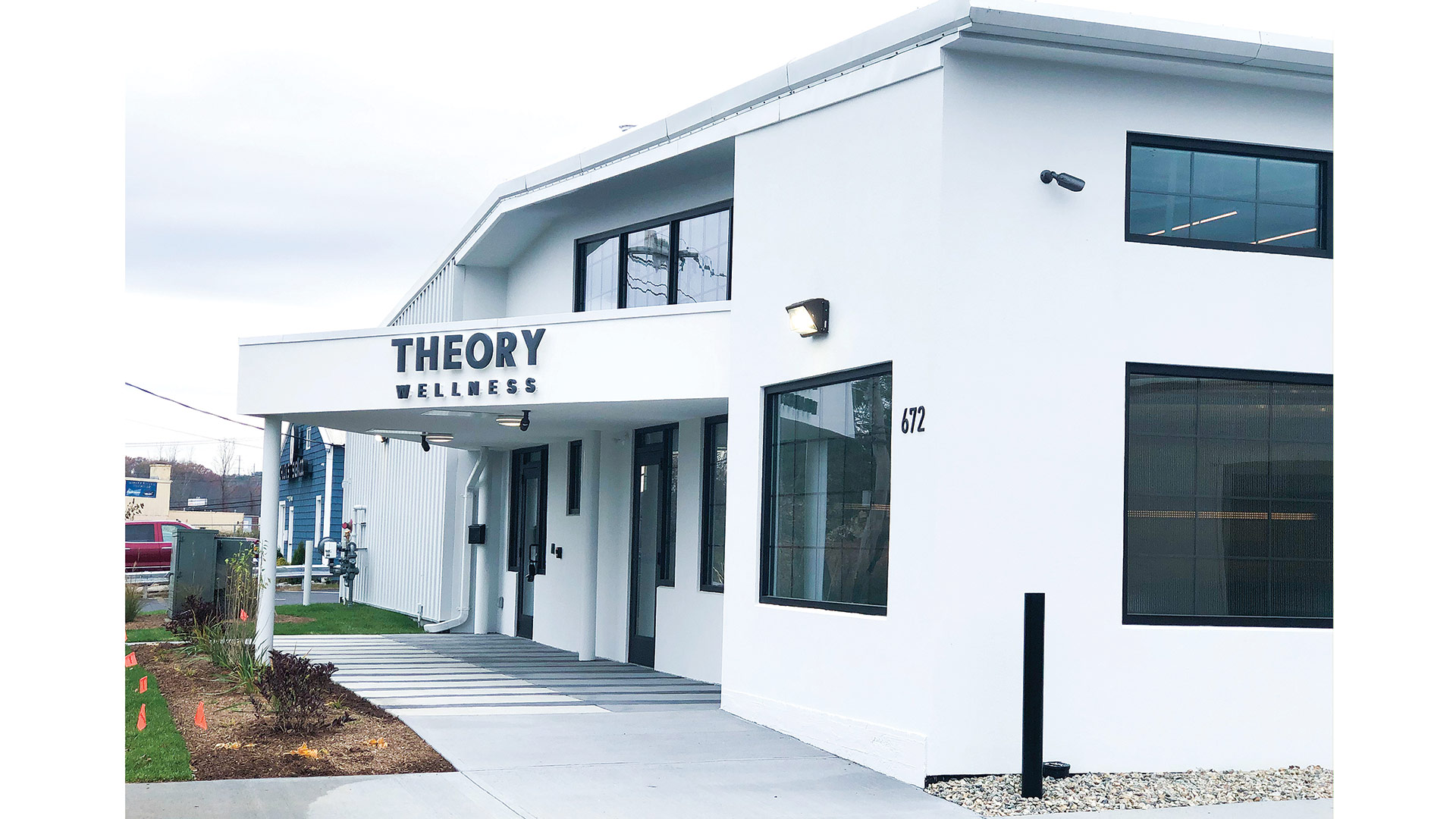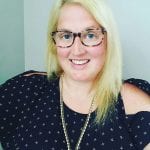Doubling Down
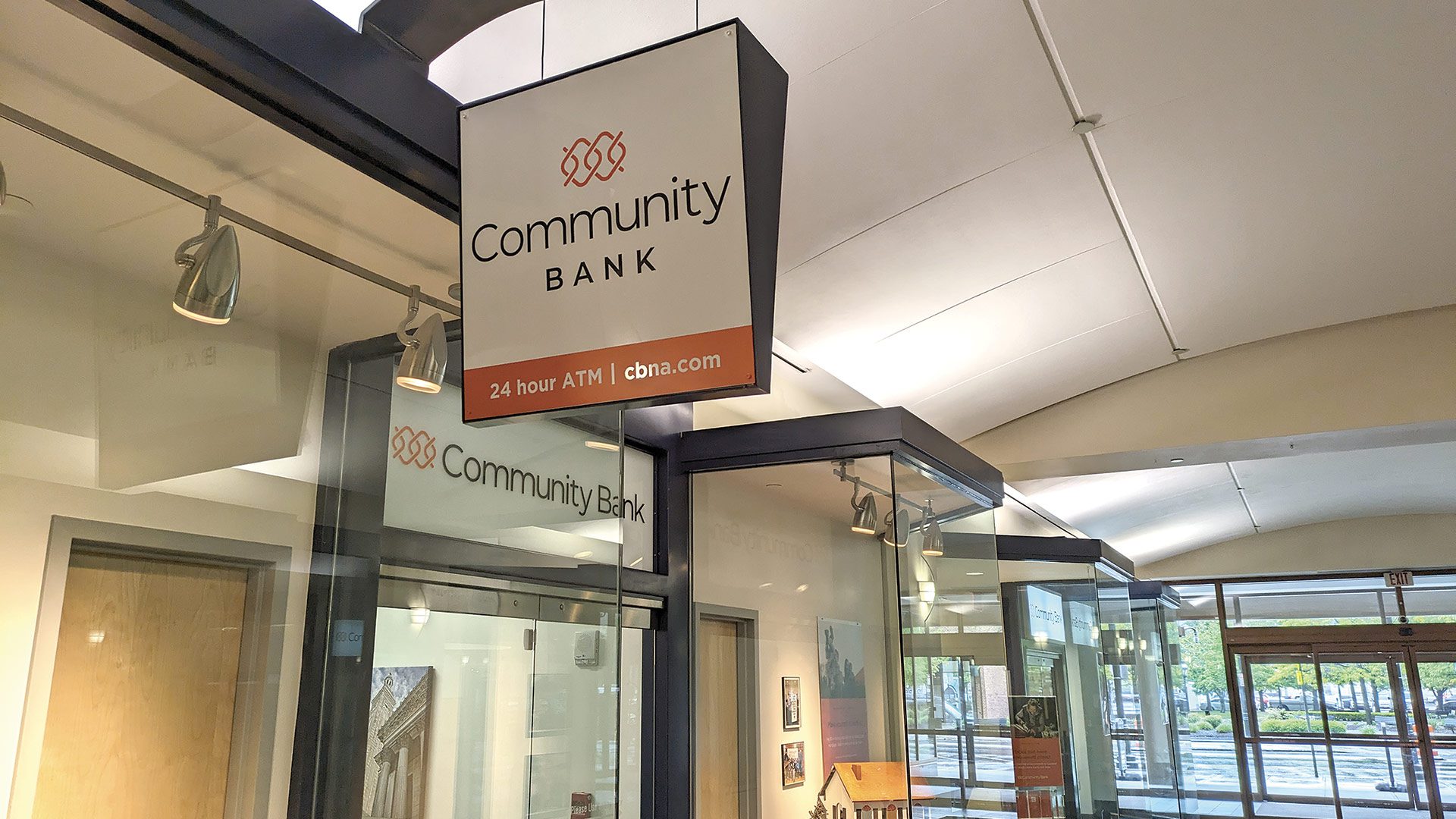
Community Bank’s branch inside Tower Square will be complemented later this year by a second Springfield location on Boston Road.
When Community Bank expanded in 2017 with the acquisition of Merchants Bank, it gained a large network of branches in Vermont … and one in Massachusetts.
That office is located in Tower Square in downtown Springfield and had been NUVO Bank before hanging the Merchants banner. Located far from any other Community location — the organization has a strong presence in Pennsylvania and New York as well as its newer footprint in Vermont — it wouldn’t have been surprising had Community shed it altogether. But the bank saw value in a Springfield presence.
And now, seven years later, it’s doubling down, planning to open a second Springfield location on Boston Road later this year.
“It’s a market that’s not too far from Albany, but far enough where it’s a very distinct market by itself. And because it’s one branch, it’s been a little bit under the radar,” President and CEO Dimitar Karaivanov said. “But it’s a good market with good opportunities, and we have a really good team in the market, and the level of energy and activity in Springfield has been very hot.
“So almost a year ago, we decided we hadn’t given Springfield its rightful chance to succeed,” he went on. “We’re just one branch and have a good team, but we’re somewhat limited by the fact that it’s only one branch downtown. So we decided to kind of invest in the team and the opportunities that we have in the market, and we’re going to double our presence.”
The bank is doing so, he said, in locations that make strategic sense, and also, in some cases, investing in lower-income areas. “We’re looking at communities that offer opportunity from an economic perspective, but we also consider it our responsibility to invest in communities and bring them along in terms of growth. That’s how we’ve been selecting some areas that we’re going into.”
While Greater Springfield has been called overbanked, Karaivanov said Community Bank sees plenty of potential in expanding.
“We’re just one branch and have a good team, but we’re somewhat limited by the fact that it’s only one branch downtown. So we decided to kind of invest in the team and the opportunities that we have in the market, and we’re going to double our presence.”
“There’s no lack of competition in Springfield — there are a lot of banks, a lot of mutuals, a lot of credit unions,” he said. “But the reason that we feel like we can be successful is our team. So we’re really investing in our team. That’s how we look at expansion; it’s really people-based. Obviously, the market needs to be sizable enough for another entrant, but we feel like we’ve got a team that we have basically under-leveraged over the past several years. And now we’re trying to give them more runway and opportunity to be successful.”
Branching Out
As Community Bank expands in Springfield and other markets, it’s doing so, the organization explains, by reimagining the in-branch experience with clean, modern designs that encourage customer and banker collaboration, local community tie-ins, and staff that can handle a wide array of financial needs.
“Branches are still pretty important, and I think they will continue to be important,” Karaivanov said. “If you look at where most accounts, especially new accounts, are opened, it is still predominantly in the branch. People still get their mortgages predominantly in the branch. That initial contact with a financial institution is mostly in the branch.
“Now, when you open your second account, or if you are already a customer of a bank, you might go online to apply for a mortgage and other things. But to get into the ecosystem, usually the average person still starts in the branch.”
He cited the example of JPMorgan Chase launching an online-only bank six years ago, “and no one’s heard of it since,” he noted. “Instead, you’re seeing JPMorgan open branches all over the place. It’s hard to be just online. You need both parts.”
To that end, modern branch designs are different than the old, traditional model of counters and lines, he added.
“Today, the branch is really more advisory and consultative than transaction-based because transactions are easy to do on your phone, and you don’t need to go into the branch for a specific transaction anymore. But people do go to the branch for advice and for questions and when they have a problem. So spaces in the branch are designed in a much different way.”
Dimitar Karaivanov
“Transactions are easy to do on your phone, and you don’t need to go into the branch for a specific transaction anymore. But people do go to the branch for advice and for questions and when they have a problem.”
Community Bank currently boasts 28 branches in New England, all but one of them in Vermont, and its current expansion plans include the first New Hampshire branch in addition to the second Springfield location.
“Community Bank is not just expanding, but deepening our roots in New England,” said Matthew Durkee, regional president for New England. “Our branches are the cornerstone of our retail business, and each one allows us to support the community and deepen our relationships with our customers as we partner together throughout their financial journey.”
Those community relationships involve philanthropy and volunteerism in communities where the bank has a presence, Karaivanov added.
“We do a lot of that, led by our branch staff most of the time,” he told BusinessWest. “It’s in our name, right? So we live by it. Our people are involved, they’re on boards, they’re in the Rotary Clubs, they know their neighbors, they’re supporting the local schools, teams, and everything else. It’s how we distinguish ourselves. Those are our neighbors, they’re our friends, and being part of the community is just as important as being a financial institution.”
With its commitment to Springfield affirmed, he added that Community Bank could look to expand further in Massachusetts where it makes sense.
“Hopefully, as we are successful in this expansion, we would like to do more. I’m a big believer in getting behind your success. So if we continue to be successful in Springfield, we’re going to continue to grow.
“Again, this has been a little bit of an outpost for us. Meanwhile, the team’s been doing a great job. And now is the time for us to empower them to do even more.”
One-stop Shop
Earlier this month, Community Bank System Inc. — which encompasses four key businesses: banking, benefits administration, insurance, and wealth management — changed its name to Community Financial System Inc. to better reflect the company’s reach.
“The new name allows us to emphasize the evolution of our capabilities, solutions, and focus,” Karaivanov said. “In aggregate, over 39% of our revenue is comprised of diversified fee-income businesses, well over twice that of industry peers. Bringing all of that under the new name, Community Financial System, underscores our mission and drives our inclusiveness as one company.”
It’s a different model, he said, than financial-services organizations in which banking is 90% of the pie.
“We’re a bit of a unicorn because we have four different businesses, and the way we run the company, the bank is our largest business, but it’s not the whole business. With our benefits business, we help people with their 401(k) plans; we administer those all over the country. Or, if you’re an individual and you’re coming for a mortgage from us, we can directly give you a quote for the homeowners’ insurance as well.”
Meanwhile “if you have amounts in your banking accounts that clearly can be invested in better outcomes for you, we’ve got the wealth-management side of the house, or the trust capability. And on the commercial side, especially for small to mid-sized businesses, we can provide everything from capital to insurance to managing their benefit plans, actually helping them with HR consulting.
“It gives us a real leg up when we talk to customers because we’re not just a one-widget shop,” Karaivanov added. “We can provide comprehensive solutions.”





